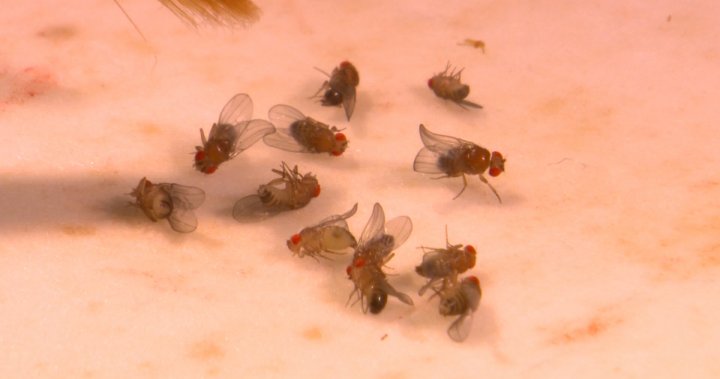A team of researchers at Simon Fraser University’s Verheyen lab have made a breakthrough in Parkinson’s disease research by identifying a gene in fruit flies that appears to reverse symptoms of the disease. The gene, called Cyclin-dependent kinase 8 (Cdk8), has similarities to a gene in humans called CDK19, which plays a crucial role in ensuring the proper functioning of cells by regulating various processes, including DNA repair and metabolism. By introducing extra copies of the Cdk8 gene into fruit flies with Parkinsonism, the researchers were able to reduce their symptoms, particularly by aiding in the removal of defective mitochondria, which is impaired in Parkinson’s disease. The similarities between the fly gene and the human gene suggest that this discovery could potentially lead to new treatments for Parkinson’s patients in the future.
The research, which was published in Nature Communications and done in collaboration with a group from Bayor College of Medicine in Texas, opens up new possibilities for understanding and treating Parkinson’s disease. By studying the fruit fly version of the Cdk8 gene, the researchers hope to gain insights that are relevant to treating the human form of the disease. Future steps in their research may involve exploring the development of drugs that could activate Cdk8 cells in the body, allowing it to produce the gene on its own instead of relying on external sources. This could potentially lead to new therapeutic approaches for Parkinson’s patients and improve our understanding of the disease at a molecular level.
Parkinson’s disease is a neurodegenerative disorder that affects a person’s movement and nervous system. It can manifest in various motor symptoms such as tremors, slowness of movement, stiffness in limbs, and balance issues. The exact cause of Parkinson’s remains largely unknown, but it is believed to be a combination of genetic and environmental factors. The symptoms of Parkinson’s occur when the cells in the brain that produce dopamine begin to die off, leading to the characteristic motor impairments associated with the disease. The World Health Organization has identified Parkinson’s as one of the fastest-growing neurological disorders globally, highlighting the urgent need for new research and treatments to address this debilitating condition.
The discovery of the Cdk8 gene’s potential role in reversing Parkinson’s symptoms offers hope for the development of targeted therapies that could improve the quality of life for patients with the disease. By studying the mechanisms by which the gene functions in fruit flies, researchers can gain valuable insights into how to manipulate the gene in human cells to achieve similar therapeutic effects. Collaborations with other research groups, such as the one at Bayor College of Medicine, allow for the sharing of knowledge and resources that can accelerate the pace of discovery in the field of Parkinson’s research. Future studies may focus on identifying specific drugs or interventions that can target the Cdk8 gene and enhance its function in patients with Parkinson’s.
The potential for using genetic manipulation to treat Parkinson’s disease represents a promising avenue for future research and therapeutic development. By harnessing the power of gene editing technologies and understanding the molecular pathways involved in Parkinson’s, researchers can design more effective and targeted treatments for the disease. The discovery of the Cdk8 gene’s role in reversing Parkinson’s symptoms highlights the importance of studying model organisms like fruit flies to uncover key insights that may translate to human diseases. Ultimately, the goal of this research is to improve our understanding of Parkinson’s disease and pave the way for novel treatments that could halt or even reverse the progression of the disease in affected individuals.
In conclusion, the discovery of the Cdk8 gene as a potential target for reversing Parkinson’s symptoms represents a significant advancement in the field of neurodegenerative diseases. By studying its function in fruit flies and collaborating with other research groups, the team at Simon Fraser University’s Verheyen lab is paving the way for new therapeutic approaches to treating Parkinson’s disease. With further research and clinical trials, the hope is that this gene could one day be used to develop targeted therapies that could significantly improve the lives of patients with Parkinson’s. This groundbreaking research highlights the importance of interdisciplinary collaboration and the use of model organisms to uncover novel insights into complex diseases like Parkinson’s.


